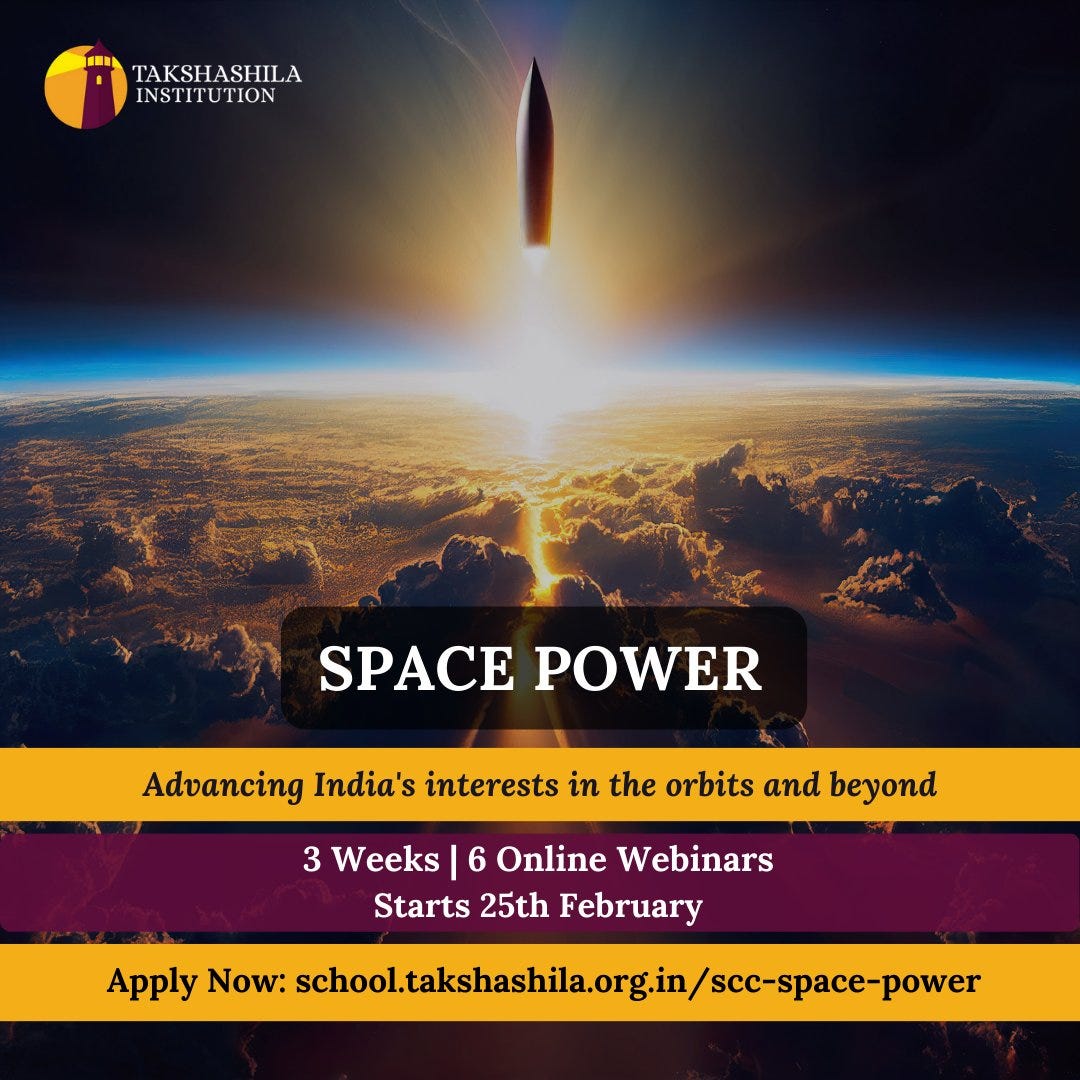Understanding the Post-Pandemic World
Dear Reader,
We hope you are well. In this edition of Takshashila Dispatch, we bring to you the latest updates from our conference on the post-pandemic world order, research on gene drives as a tool for tackling malaria, the challenge to armed forces from changing social norms around marriage and sexuality, lessons from the Chinese spy balloon saga, and a study on governance decentralisation in Indian panchayats.
Understanding the Post-Pandemic World
Takshashila Institution organised a Conference on Understanding the Post-Pandemic World on Wednesday, 8th February 2023 at its office. The conference focused on resetting our common understanding of the post-pandemic world based on the latest geopolitical, geo-economic & tech trends.
Nitin Pai, Director of Takshashila Institution, chaired the conference. Anupam Manur, Manoj Kewalramani, Shambhavi Naik, and Pranay Kotasthane presented their papers at the conference.
In the post-pandemic world order, we are likely to witness intense national competition & contestation, especially over trade, technology & security.
While Anupam spoke on economic narratives that are shaping trends towards ‘de-globalisation’, Manoj characterised the current world order as a time of great power competition in an increasingly multipolar world. Pranay and Shambhavi spoke about how high technology and biotechnology will play a critical role in determining national power in the next decade, respectively.
Read the working papers from the conference here:
Dominant Economic Narratives in the Post-Pandemic World by Anupam Manur
Great Power Competition in the Indo Pacific by Manoj Kewalramani
Can Gene Drives Eliminate Malaria?
Gene drives are an emerging technological application to reduce the prevalence of vector-borne diseases, crop pests, and non-native invasive species. This method for vector control is currently at the research stage, with parallel community engagement programmes being carried out in African countries to raise awareness for its adoption.
Takshashila’s latest discussion document Gene Drives and Vector-Borne Diseases: A Comparative Perspective Using Malaria as a Case Study by Saurabh Todi, presents a case study on malaria to examine the potential of gene drives to eliminate vector-borne diseases.
He argues that India currently does not require the use of gene drives to achieve control of mosquito-borne diseases. However, India should invest in research for gene drives and vaccines, while continuing with current efforts to curb vector-borne diseases.
Armed Forces: Coping with Changing Social Norms
The Supreme Court of India ruled recently that armed forces personnel can be punished for adultery under military laws, despite adultery being decriminalised under the penal code. In an op-ed for the Deccan Herald, Lt. Gen. Prakash Menon writes that changing societal norms around marriage and sexuality will challenge established armed forces’ value systems around good conduct, morale, and effectiveness:
Marriage remains the social institution that endures as the foundation for social stability and, importantly, provides for the upbringing of children. However, cohabitation outside of marriage between consenting adults is gaining currency as a social practice, especially among the urban Indian middle class. Cohabitation or live-in relations are legal as long as the requirements of legal age, consent, and soundness of mind are met. It is only a matter of time before the armed forces have to take a position on it. When it comes to sexual norms, drawing the line is becoming increasingly difficult. For example, a live-in relationship between a commanding officer and a company commander would be unacceptable. But if it is between an officer and a civilian, there is the possibility of accommodation.
Chinese Spy Balloons
Much of the world was captivated by a large Chinese spy balloon flying over the U.S. in early February until it was shot down by U.S. jets on the orders of President Biden. In an article for the Times of India, Aditya Ramanathan writes on what the spy balloon saga tells us about espionage in the modern age:
Also, in an episode of All Things Policy, Manoj Kewalramani and Pranav Satyanath joined Aditya to discuss the spy balloon and its implications for the Sino-U.S. contest playing out today:
Challenges for Local Government Bodies in India
Despite three decades after the 73rd & 74th Constitutional Amendments, which gave constitutional status to local governments, state governments through the local bureaucracy continue to exercise considerable discretionary authority and influence over panchayats in India.
In this episode of All Things Policy, Carl Jaison is joined by Pranav Gupta, Ph.D. candidate at the University of California, Berkeley, to discuss the findings from his field research where he interacted with sarpanches and local bureaucrats to assess the extent of decentralisation of powers to panchayats.
Pranay Kotasthane at the Vidarbha Literary Festival
Pranay Kotashtane, Deputy Director of Takshashila, participated in two panels at the Vidarbha Literary Festival on February 4 & 5, 2023.





Special Credit Course on Space Power
The ability to use space for commercial, scientific, and military purposes is a vital determinant of national power. Recent years have seen the rise of a global commercial space sector, growing lunar ambitions, and plans for interplanetary exploration.
The Special Credit Course on Space Power will provide an introduction to emerging issues related to space and how those could shape India’s interests, its opportunities, and the choices it makes. The course will cover the government and commercial space sectors, strategic affairs, and international governance.
The course is primarily designed to be useful for government officials, members of the armed forces, space entrepreneurs, lawyers, academics, policy professionals, and other individuals interested in outer space affairs. It will be conducted online only on weekends.
That’s all from us this week. Take care!






